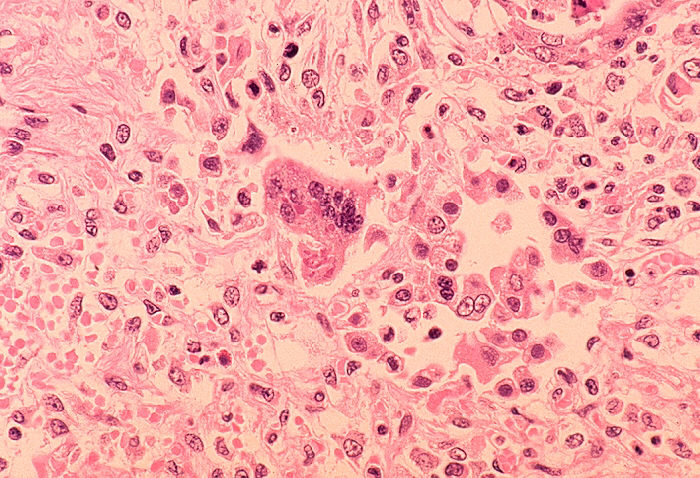Health - Anti-Vaxxers Cause Measles Outbreak
Anti-vaccination activists spread discredited information in a Somali-American community in Minnesota, and it didn't take long for the northern US state to have its worse measles outbreak in more than a decade.
Suaado Salah grew up in Somalia, and saw firsthand what measles can do. Her sister died of it at age three. But the anti-vaxxers targeted the close-knit and insular community of former refugees from Africa in the midst of state known for its Nordic immigrant population. They told the usual debunked conspiracy theories, that the Measles Mumps Rubella (MMR) vaccine caused autism in children. They hosted talks the father of the anti-vaccine movement, disgraced former doctor Andrew Wakefield. It's not clear if the Somalis knew that Wakefield is banned from practicing medicine because he was found to have faked his research.
But immunization rates plummeted, and fell below the threshold needed to prevent disease. And the first cases of measles started showing up last month.
Now, two of Ms. Salah's her three-year-old boy and 18-month-old girl are sick in the outbreak. "I thought: 'I'm in America. I thought I'm in a safe place and my kids will never get sick in that disease," Salah told the Washington Post. She also said she no longer believes the lies told by the anti-vaxxers.

Healthcare workers from the Somali-American community are appalled.
"It's remarkable to come in and talk to a population that's vulnerable and marginalized and who doesn't necessarily have the capacity for advocacy for themselves, and to take advantage of that," said clinician Siman Nuurali of , a Somali American clinician with Children's Hospitals and Clinics of Minnesota. "It's abhorrent."
Officials are worried that it will take a long time to undo the damage because the misinformation is now deep-set in the Somali community. Suaado Salah and her husband Tahlil Wehlie plan to take their story to the community and let people know that the anti-vaccine groups are wrong and that all children should get immunized.
"Because when the kids get sick, it's going to affect everybody. It's not going to affect only the family who have the sick kid," she said. "They make sick for everybody. That's when you wake up and say, 'Okay, what happened?' "
Wakefield denies responsibility: "The Somalis had decided themselves that they were particularly concerned," Wakefield said last week. "I don't feel responsible at all."








 Create PDF
Create PDF Print
Print Email to friend
Email to friend